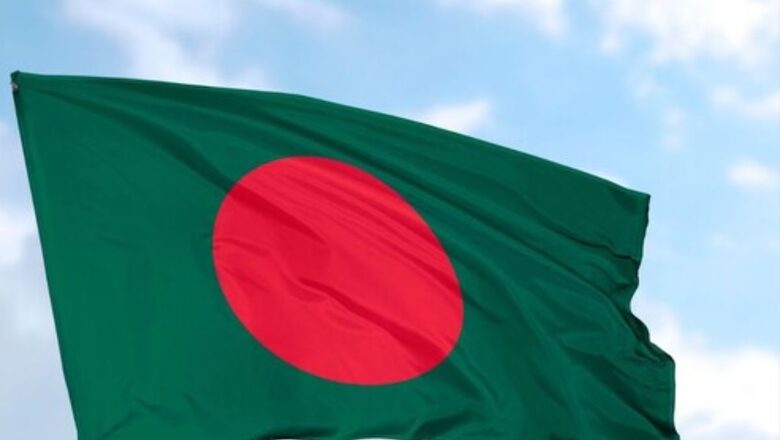
views
Pakistan and Bangladesh, formerly a single political entity carved out of British India, are heading to general elections early next year. Interestingly, whilst the date for Bangladesh elections in January 2024 stands frozen, Pakistan seems to be on shaky ground. The poll date was initially announced to be February 11, 2024, and then it was changed to February 8, 2024. One can’t be sure, given the state of democracy in Pakistan, whether polls would be held or would be postponed further on flimsy grounds to suit the whims and fancies of Pakistan’s military that strangulated democracy there.
Both Pakistan and Bangladesh have come a long way from their bitter split in 1971, when Bangladesh came into being after a prolonged violent war with the Pakistani State. However, as the electoral processes unfold, their trajectories could not be more contrasting. The electoral outcome in both the countries will have significant implications for their respective futures.
Pakistan is battling its self-inflicted financial ruin while scrambling for repeated international aid to avert a potential default on account of its over $125 billion in external debt, with a debt to GDP ratio of 88 per cent. Its political arena is equally turbulent, characterised by a vindictive campaign against former Prime Minister Imran Khan and his party, Pakistan Tehreek-e-Insaaf, which has generated significant friction in the run-up to the elections.
On the other hand, Bangladesh has embarked on a landmark developmental trajectory, having been one of the best performing economies of South Asia for the last two years. Prime Minister Sheikh Hasina, the daughter of country’s founder Sheikh Mujibur Rehman is at the centre of this transformation. She has transformed Bangladesh from an “international basket case” because of its extreme dependence on external sources into “a lower-middle income status in 2015.” At the time of assuming office in 2006, PM Hasina inherited a $71.82 bn GDP economy from the Khaleda Zia led Bangladesh Nationalist Party (BNP)-Jamaat alliance. Since then, it has witnessed an exponential increase by nearly 520 per cent to $446 bn by 2023 under her leadership.
The country is poised to graduate to the “UN’s Least Developed Countries (LDC) list in 2026.” In its country overview remarks for Bangladesh, the World Bank emphasises that the country has strengthened its economic architecture resulting in “a strong track record of growth and development, even in times of elevated global uncertainty.” The global financial institution credits this transformation to “a robust demographic dividend, strong ready-made garment (RMG) exports, resilient remittance inflows, and stable macroeconomic conditions have supported rapid economic growth over the past two decades.”
This transformation under PM Hasina’s leadership has also been made possible by the government’s strong security measures to combat Islamist extremism and by adopting some of the most liberal Foreign Direct Investment (FDI) policies in South Asia. These include a “liberalised industrial policy, one-stop service, an allowance for 100 per cent foreign ownership, an easy exit policy, a 15-year tax exemption, a VAT exemption for imported machinery, streamlined services, and more.” It further established institutions such as Bangladesh Investment Development Authority, Bangladesh Economic Zone Authority, Bangladesh Export Processing Zone Authority, Bangladesh High Tech Park Authority, among others.
As a result, FDI inflows increased sharply from a modest “USD 466.40 million in 2006 to USD 2.17 billion in 2021-22.” These economic measures resulted in a strong annual growth, which has percolated to the citizens and enhanced the quality of the life, especially by increasing the woman share of the workforce, which is the most in the region. This is manifested by its exponential increase in the per capita Gross National Income (GNI) from a mere $570 in 2006 to $2820 by 2022.
Prime Minister Hasina’s leadership in transforming Bangladesh has earned her global recognition. The Economist, in its May 2023 issue, called her “Asia’s Iron Lady” for overseeing “momentous poverty alleviation in her country of 170 million, fuelled by average annual GDP growth of 7% for much of that time” during her near two decades in office. Likewise, Kaushik Basu, the former Chief Economist of the World Bank, called Prime Minister Hasina’s rule in May 2023 as “a ‘15-year gallop’ for Bangladesh”. Further, a national survey by the International Republican Institute (IRI), released in August 2023, stated that an overwhelming “70 percent of Bangladeshis say the prime minister is doing a good job, and majorities approve of the government’s performance on various policy issues from access to drinking water to improving education.”
Bangladesh development story is in stark contrast with Pakistan, which remains under an entrenched military control, both politically and economically, with subdued institutions and self-inflicted economic disaster. Pakistan is crawling on the economic aid of external donors and creditors, with no revival in sight without essential structural economic reforms, as required by multilateral institutions like the International Monetary Fund (IMF) and bilateral partners such as Saudi Arabia and China.
Islamabad also owes Beijing over $30 billion in circular debt, putting its state assets at risk of Chinese control like Sri Lanka, Maldives, and a host of African countries. Bangladesh, on the other hand, has effectively managed its relationships with external creditors like China and has consistently outperformed Pakistan in economic growth since 2006, when Pakistan held a slight advantage.
As elections approach, Sheikh Hasina finds herself visibly constrained by external actors led by the United States and Pakistan to cede political space to fundamentalist Islamist forces like Jamaat-e-Islami Bangladesh that has been deregistered by a court order. Dhaka has maintained its commitment to deliver a transparent election and provide a fair space to political parties under the rule of law of the country. The US administration has tried to muzzle the Bangladeshi government through its brazen interventionist approach by threatening punitive measures against its government functionaries.
This assumes significance because in December 2021, US State Department sanctioned members of Rapid Action Battalion (RAB), the elite paramilitary force of the country, accusing it of human rights violations. Further, what is surprising is how a force that was established by Khaleda Zia, notwithstanding the opposition by the Awami League, in 2004 has come to be demonised by her own party BNP.
Equally worrisome is the reliance of Begum Zia’s BNP and its alliance partners, such as Jamaat-e-Islami Bangladesh, on violent mass mobilization, which has disrupted public order and raised the risk of plunging the country into chaos. Jamaat-e-Islami Bangladesh, was deregistered in 2011 following the Bangladesh’ supreme court’s order because of its repeated indulgence in violent demonstrations. This radical outfit in particular, has become emboldened to return to confrontational politics through widespread protests since June 2023.
As a result, the past few months have seen increased political violence in Bangladesh where several people lost their lives. This could take the country back to the violent days of BNP-Jamaat rule in early 2000s when Bangladesh descended into anarchy and witnessed a surge in the Islamist extremism.
In the light of these developments, the forthcoming elections assume importance in the face of external pressures that have emboldened fundamentalist forces threatening to destabilise the country. Therefore, the Bangladeshi electorate has an important responsibility to bear when they cast their votes in the coming months. It will be a vote for the country’s future.
The choice is between rapid progress and anarchy. Bangladesh can’t afford the risk of handing over the reign of the country to parties like Jamaat which maintain allegiance to the Pakistani Army even as Pakistan’s future itself looks bleak.
The writer is an author and columnist and has written several books. He tweets @ArunAnandLive. Views expressed in the above piece are personal and solely those of the author. They do not necessarily reflect News18’s views.




















Comments
0 comment